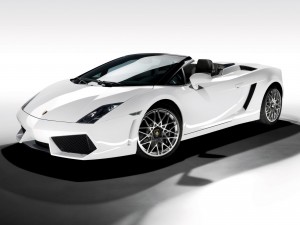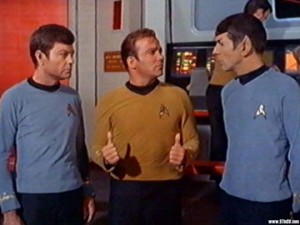“All this matters because economists thought, wrote, and prescribed as if nature did not.”
J. R. McNeill, Something New Under the Sun.
“Global Warming is nonsense. Greenhouse gases mean growth, far as I can see. The Earth is one big resource, to exploit and consume, for the grand old party.”
L. J. Furman, Sunbathing In Siberia
Economics, according to Daly and Farley, in Ecological Economics, ISBN 1-55963-312-3, is “the science of allocation of scarce resources among alternative ends,” or “what we want and what we have to give up to get it.”
Since the Great Depression economics has been about growth. Neo-Classical Economists measure the health of an economy by the growth of Gross Domestic Product, GDP, the sum of the goods an services produced in the market.
Ecological Economists think that the purpose of the economy is not simply to maximize and keep increasing the value of goods and services that are passed around. According to Robert Costanza, Director of the Gund Institute and Professor of Ecological Economics, University of Vermont, “The purpose of the economy should be to provide for the sustainable well-being of people.” Ecological Economics distinguishes growth from development. Growth, an increase in throughput, can waste resources. Development, a qualitative change for the better, results in realization of potential. Ecological Economists distinguish between costs and benefits, and subtract costs. Rather than the Gross Domestic Product, GDP, Ecological Economists focus on the Genuine Progress Indicator, GPI,and distinguish economic goods from what Donella Meadows calls “economic bads.
Suppose I buy a $200,000 Lomborghini. I pick up a friend, take her to dinner, drink some expensive wine, crash the car, wind up in the hospital. There I’m met by an insurance adjuster who values the wreck that was my car, a cop who gives me a ticket for drunk driving and arrests me for vehicular homicide. I also meet my soon-to-be-ex-wife’s legal counsel, my own legal counsel, and various doctors, nurses, and other highly trained medical personnel. I have stimulated the economy. However, rather than create wealth, I have destroyed some wealth and reallocated some of my wealth to various other parties. The new car is now in the junkyard, the girl’s new clothes and jewelry are destroyed. She is deceased. I am harmed. The redistribution of resources is Pareto inefficient. A neoclassical economist will say “You’ve increased GDP! You’ve stimulated the economy!” An ecological economist will say “You have created negative growth. The highest potential of the resources transformed into the car, clothes, and jewelry were not realized. The girl’s potential was not realized. Your highest potential is not realized in paying large legal fees in a divorce and in fighting charges of drunk driving and vehicular homicide.”
Consider Iraq, Chernobyl and Three Mile Island. The failed nuclear power plants at Chernobyl and Three Mile Island cost Hundreds of Millions of Dollars to build and Billions of dollars to manage. Yet they produce no power. They are Pareto inefficient. They continue to contribute to the GDP because societies have to allocate resources to manage the mess. These are “economic bads.” Similarly, the war in Iraq. The economic costs are estimated to over One Trillion Dollars. Whie some people made a lot of money, many others died or suffered grievous injuries. Rather than stimulate the economy, this was a drain of capital. These events detract from society’s well being.
Suppose a parent stays home from work for a few years to raise small children. The DGP is diminished by the unrealized value of that person’s professional labor. Even if the parent is a professional child care giver; because he or she is not payed to care for his or her own children, the GDP is diminished. If the parent hires a day care provider and goes to work, caring for other children, GDP is increased. This is illogical. The net effect is the same – the child is cared for. In fact, the long term effect may be better if the parent provides day care because the parent loves the child and can provide better care. This is an example of social capital, which is not measured by GDP, demonstrating that GDP is a flawed metric.
NeoClassical Economics focuses on what is believed to be efficient allocation of resources. Ecological Economics looks at the economy within the context of human ecology. Ecological Economists suggest that there is a finite limit to growth, and that we must address inequitable distribution of goods, services, and resources. They say we must look at human capital, natural capital, social capital, as well as built or produced capital and financial capital. NeoClassical Economists don’t value natural capital or social capital. Stay-at-home parents caring for their children, or people caring for elderly relatives, do not contribute to the GNP. Lakes, fish, forests, coal deposits, are simply resources to be consumed.
A basic tenet of NeoClassical Economics holds that people are rational, that we always want what’s good for us. This is proven to be a fallacy daily – every time anyone eats a doughnut, smokes a cigarette, or eats a meal in which the nutritional value of the food is offset by the salt, fat, grease, and sugar. The fallacy is also dramatized in just about every episode of Star Trek, the original series, when Captain Kirk does something brilliant but intuitive, a puzzled Mr. Spock says “I don’t understand; your solution was illogical, yet it worked” and Dr. McCoy says “You would understand if your were human.” The point driven home is that we humans are not rational when it comes to making decisions and solving problems. We can use logic, but more often than not we use logic to rationalize a decision made emotionally.
The framework of Ecological Economics is relevant for business if only because valued humans are more productive, In Reframing Organizations, Bolman and Deal (Wiley, 2008. ISBN 978-0-7879-8798-5) compare McWane Steel and Nucor Corp. McWane doesn’t value human capital, has higher turnover, higher accident rates, and lower profits than Nucor.
Neoclassical Economists talk about Pareto Efficient resource allocation, i.e. one in which at least one person is better off and no one is worse off. It is not “the rich get richer and the poor get poorer” but “someone gets richer and no one gets poorer.” Ecological Economics says “efficient allocation of resources is not most important:. “If your ship is loaded efficiently, but overloaded and sinks, you’ve lost your cargo.
John Maynard Keynes is said to have rebutted Adam Smith’s laissez faire approach with the non-sequitor “In the long run we are all dead.” Meaning, he suggests, since we are alive today and likely to be alive tomorrow, we should act to rectify problems with the economy (and improve happiness). This also suggests that the framework of Ecological Economics is relevant for individual business. Neo-Classical Economics considers human capital only in the context of how much a business has to pay for competent workers, as the means by which to generate control over additional resources, to get more produced capital and financial capital. Human capital, in the context of Neo-Classical Economics, can and should be disposed of when it has outlived its usefullness. Ecological Economics considers enhanced natural capital, human capital and social capital as the ends for which financial capital, produced capital, human capital, and natural capital are managed. Neo-Classical Economics discounts the future while Ecological Economics takes a long term view. If we were truly logical “H. economicus,” then everyone who could reasonably expect to live more than a few days, or who had loved ones with the reasonable expectation of continued life or a continued business enterprise, would take a long term view.


